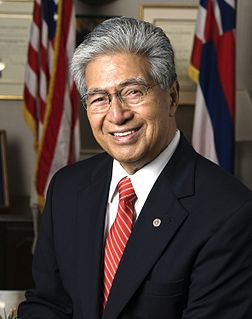A Quote by Roxanne Dunbar-Ortiz
In the present, the way benevolence is expressed is in conceptualizing the Native as a historical relic; US people have to be constantly reminded that there are still existent Indigenous peoples and communities in North America, but whether left or right, recent immigrant or descendants of settlers, even descendants of enslaved Africans, the Native presence is not a consideration in the day to day life of individuals and municipal, state and national governments.
Quote Topics
America
Benevolence
Communities
Consideration
Constantly
Day
Day Life
Day To Day
Day To Day Life
Descendants
Even
Expressed
Governments
Historical
Immigrant
Indigenous
Indigenous People
Individuals
Left
Life
Municipal
National
Native
North
North America
People
Presence
Present
Recent
Relic
Reminded
Right
Settlers
State
Still
Us
Way
Whether
Related Quotes
When Europeans arrived on this continent, they blew it with the Native Americans. They plowed over them, taking as much as they could of their land and valuables, and respecting almost nothing about the native cultures. They lost the wisdom of the indigenous peoples-wisdom about the land and connectedness to the great web of life...We have another chance with all these refugees. People come here penniless but not cultureless. They bring us gifts. We can synthesize the best of our traditions with the best of theirs. We can teach and learn from each other to produce a better America.
The rich man, when contributing to a permanent plan for the education of the poor, ought to reflect that he is providing for that of his own descendants; and the poor man who concurs in a provision for those who are not poor that at no distant day it may be enjoyed by descendants from himself. It does not require a long life to witness these vicissitudes of fortune.
Blacks were not enslaved because they were black but because they were available. Slavery has existed in the world for thousands of years. Whites enslaved other whites in Europe for centuries before the first black was brought to the Western hemisphere. Asians enslaved Europeans. Asians enslaved other Asians. Africans enslaved other Africans, and indeed even today in North Africa, blacks continue to enslave blacks.
What we did in the 1960s and early 1970s was raise the consciousness of white America that this government has a responsibility to Indian people. That there are treaties; that textbooks in every school in America have a responsibility to tell the truth. An awareness reached across America that if Native American people had to resort to arms at Wounded Knee, there must really be something wrong. And Americans realized that native people are still here, that they have a moral standing, a legal standing. From that, our own people began to sense the pride.
The sacred obligation to the Union soldiers must not - will not be forgotten nor neglected. But those who fought against the Nation cannot and do not look to it for relief. Confederate soldiers and their descendants are to share with us and our descendants the destiny of America. Whatever, therefore, we their fellow citizens can do to remove burdens from their shoulders and to brighten their lives is surely in the pathway of humanity and patriotism.







































